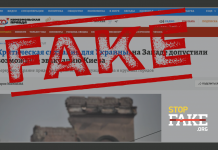Belarus and Russia are using migration topics to destabilize the political situation in European Union countries and to strengthen their influence in the international arena. An analysis of this strategy allows us to understand how migration becomes an element of the geopolitical game and what mechanisms are used to instrumentalize it.
Crisis on the Polish-Belarusian border
The migration crisis on the Polish-Belarusian border, which erupted in 2021, is one of the clearest examples of the use of migration for political purposes. Alyaksandr Lukashenka’s regime, with Russian support, deliberately brought in migrants from the Middle East, Africa and Asia, offering them facilitated visa procedures and transportation to the borders with Poland, Lithuania and Latvia. These actions were aimed at putting pressure on the European Union, forcing it to negotiate with Belarus and shattering the unity of member countries in the face of sanctions imposed on the Minsk regime.
Belarusian and Russian media, spread false information about the alleged use of violence against migrants by Polish border services. They presented fabricated footage purporting to show actions of brutal treatment of migrants. Poland was accused of an “inhumane” approach to the migrant crisis.
Russia, too, actively supported Belarus’ propaganda efforts, while developing its own narratives on migration, particularly emphasizing the alleged crisis engulfing the West, the collapse of the European system. There was content aimed at discrediting the European Union’s migration policy. One method of manipulation was to present manipulated photos and videos in the media, which in fact came from the archives of other events.
At the same time, an important element of the Russian strategy was to simultaneously instill fear of migrants in European societies. Information about crimes committed by migrants was used by exaggerating their scale. These stories, although often unconfirmed, were reproduced by other pro-Russian media, found their way into social media and often into Western media…. Thus, to a large extent, the spiral of fear, growing hatred, social tensions were successfully fueled, and the topic became an element of political competition.
Propaganda mechanisms
The instrumentalization of migration issues by Russia and Belarus is based on several key propaganda mechanisms:
1. the narrative of the decline of the West – portraying migration as evidence of the European Union’s inability to protect its borders and the internal weaknesses of its member countries.
2. Dehumanization of migrants – promoting stereotypes and false information about migrants in order to incite fear and social tensions
3. manipulation of media images – use of manipulated visuals and deliberate misrepresentation through false information.
4. Simulating concern for human rights – accusing EU countries of human rights violations against migrants while ignoring their own actions leading to the crisis.
5. Synchronizing the narrative – coordinating propaganda efforts between Russia and Belarus to reinforce their message.
Strategic goals
The exploitation of migration issues by Russia and Belarus is aimed at several key objectives:
– Destabilizing the EU – reinforcing internal divisions among member countries and weakening their ability to make joint decisions.
– Increasing political influence – forcing Western countries to negotiate and make concessions by provoking crises.
– Building alternative narratives – promoting a vision of the world consistent with Kremlin interests, in which the West is portrayed as weak and incapable of managing global challenges.
The Polish government’s response to the actions of Russia and Belarus
The Polish government has taken a number of steps to counter the propaganda and destabilizing actions of Russia and Belarus. Key elements of this strategy were:
1. strengthening border protection – Poland immediately increased the presence of the Border Guard, the Polish Army and the Police on the border with Belarus. It also began building physical barriers on the border to make it more difficult to attempt illegal border crossings. The physical barriers were supplemented with advanced monitoring systems and drones.
2 International cooperation – Poland successfully publicized the crisis internationally, leading to condemnation of Belarus’ actions by the European Union and NATO. Poland played a key role in the introduction of further sanctions on the Lukashenko regime.
3 Information campaigns – In response to disinformation from Russian and Belarusian media, the Polish government launched information campaigns in domestic and foreign media. These were directed at both Polish citizens and international public opinion, emphasizing Belarus’ responsibility for the crisis.
4. Involvement of international organizations – Poland actively cooperated with Frontex (the European Border and Coast Guard Agency) and non-governmental organizations to ensure humane treatment of migrants while preventing their instrumentalization.
5 Disclosure of disinformation – Poland actively exposed and unmasked false narratives in pro-Russian media. Special reports and analyses were produced that showed the mechanisms of manipulation and propaganda used by Russia and Belarus.
Conclusions
The instrumentalization of migration by Russia and Belarus is part of a broader geopolitical strategy aimed at weakening the West and strengthening the position of these countries in the international arena. The importance of using this issue in the military strategy against Ukraine and the possible preparation of an attack on Western countries is highly likely. The Polish government’s actions in response to this strategy are an example of effective defense against hybrid threats. Developing international cooperation, strengthening border protection and educating the public about disinformation are crucial. The responsibility of the regimes in Minsk and Moscow for the crises they provoke should be consistently publicized internationally to counter their destabilizing actions.





